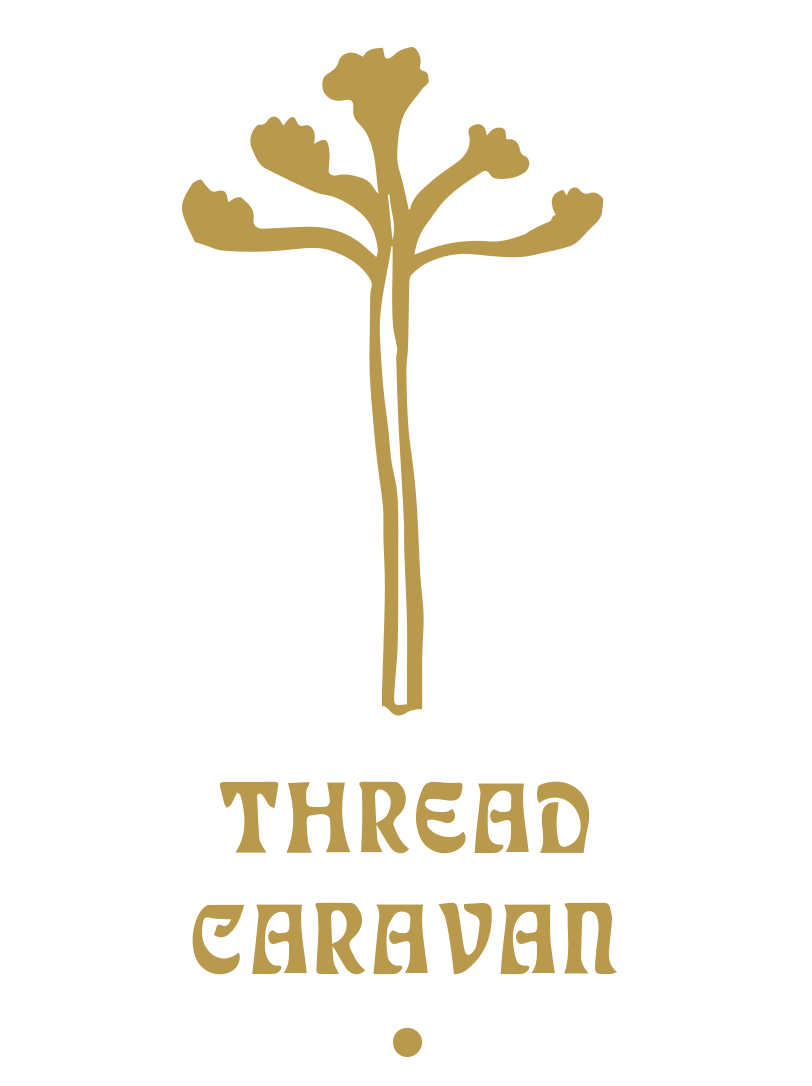IN CONVERSATION: New Denim Project
Arianne is one of those people that once you meet her, so many other connections start falling into place. Her knowledge of the fashion industry is thorough, and she brings a fresh perspective to an industry ready for change.
Almost a decade ago, she joined the family business, Iris Textiles, a cotton textile manufacturing company based in Guatemala. Her arrival coincided with a shift in the company ethos. No longer wanting to be vulnerable to the fluctuations of cotton commodity, nor wanting to contribute to the systemic exploitation of employees and natural resources, the 60-year-old business took the leap towards sustainability. Using their same technology and machinery, their vertical manufacturing system (in-house spinning, weaving, dyeing and cut-and-sew) now turns waste denim into fine-woven New Denim.
Below, our founder Caitlin sits down in conversation with New Denim Project founder Arianne.
Caitlin: How do you believe up cycled denim compares to other cotton fabrics and how much control do you have over the weight and texture of the fabric?
Arianne: Our yarns are 100% cotton - up to 70% recycled denim and the rest virgin cotton. We can make fine cotton yarns that are lightweight enough to become bed linens, medium weight yarns for making jeans or chambray, and yarns so thick they can make fabrics for upholstery.
Caitlin: I’m curious to know more about the recycled denim. When you are buying the old denim - are you buying secondhand jeans from pacas (thrift stores) or are you buying scrap pieces from suppliers in the industry?
Arianne: We started by upcycling only pre-consumer scraps from the denim factory, but now we’re also upcycling post-consumer denim like pieces from the pacas.
Caitlin: That brings up second-hand donations, a problem that I think people are becoming more aware of. For a really long time, people felt good about donating clothes, but in reality the things stay in a secondhand shop for only about a week until they get shipped to a place where they aren’t actually wanted or needed. We’re just dumping our waste on other people, plus there’s the obvious waste of fuel to send it overseas. It’s unsustainable on so many levels.
Arianne: I agree. Guatemala imports 7 million pounds of clothes per month. Which is about 150 containers. No one needs that much. Our collaboration with the pacas turns their waste into new upcycled yarns and fabrics.
Caitlin: There are so many factors in the supply chain for businesses to consider if they want to be sustainable - material sourcing, dyes, water, waste, workers rights. One that I think consumers often overlook is water. What’s your water usage like and how does it compare to that of virgin cotton manufacturers?
Arianne: In order to create textiles from virgin cotton, you need water throughout the entire process - for planting the cotton, transporting it, dyeing treatments, and the washing of the fabric. Since we’re using waste, we skip all but the washing step. It’s almost a dry process.
If you compare using virgin cotton to upcycled cotton, you can save 20,000 liters per every kilogram of upcycled material. When working at full capacity, we can process about 90,000 kilograms (200,000 pounds) of recycled material per month, so we’re saving 1,800,000,000 liters of water per month. Just for not using virgin material! It’s numbers that are hard to even comprehend.
Caitlin: Have y’all thought of upcycling other materials? I’ve heard of companies using plastic and discarded pineapple leaves for example.
Arianne: It depends on what the client is looking for. We are currently making a textile blend from upcycled denim and PET bottles for one client. That project is amazing, but we generally prefer to work with natural fibers.
Caitlin: Guatemala is most known by textile-lovers for its beautiful handwoven pieces. While upcycling denim ties into the textile industry, it’s not exactly what people imagine when they think of Guatemalan textiles. Do you have any projects producing handwoven pieces from upcycled yarn?
Arianne: You’re right. Textiles are the number one export of Guatemala - more than sugar, coffee and bananas. We believe Guatemala has some of the best artisans in the world, so we’ve partnered with Algodones Maya to make a handwoven line using our upcycled denim yarns.
Caitlin: Are you only doing wholesale or are you also producing your own products?
Arianne: We do mostly wholesale and private label manufacturing, but we’ve recently begun our own line of home linens as well. It’s called The Conscious Home and it’s available on Amazon.
Caitlin: You’ve had a lot of high profile collaborations. What kind of growth do you envision for The New Denim Project in the future?
Arianne: We definitely want to keep working at full capacity. During the time of the cotton crisis, we had to fire more than half of our employees because we didn’t have enough operations. We would also like to look at new technologies and possibly using other fibers like linen. As time goes by, we find that there’s an increasing number of clients looking for these sustainable materials. It’s not just companies that are already eco-friendly, but now it’s also bigger companies that have traditionally been more involved in fast fashion who see a market demand for sustainability and want to shift their practices. Like us, we were part of the problem, and now we choose not to be. We believe it’s not optional to be sustainable; it’s just common sense.
Learn more about the New Denim Project on their website or Instagram, or, join our Guatemala retreat to visit their factory in person.
Photos by Paula Harding for Thread Caravan.


